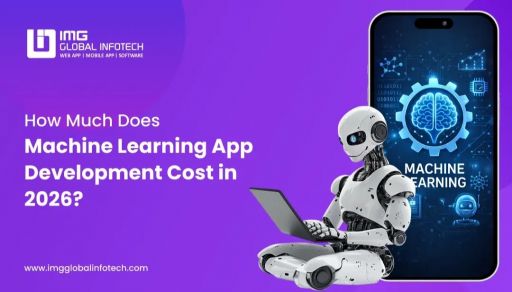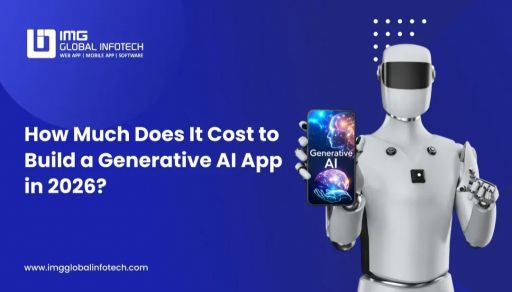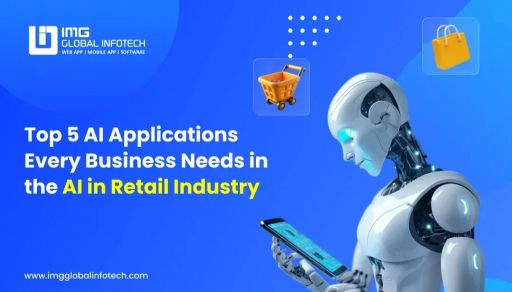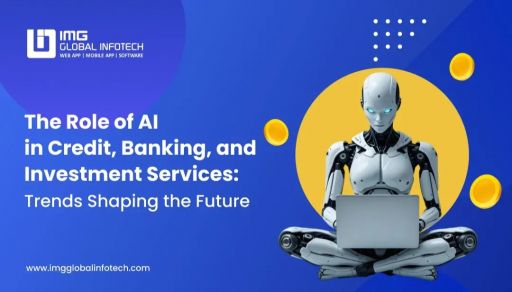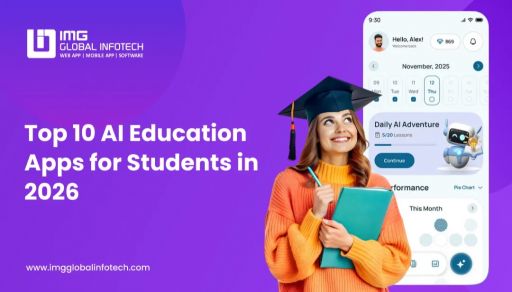AI Vs Machine Learning Vs Deep Learning: What’s The Difference?
Lokesh Saini
Nov 20, 2025
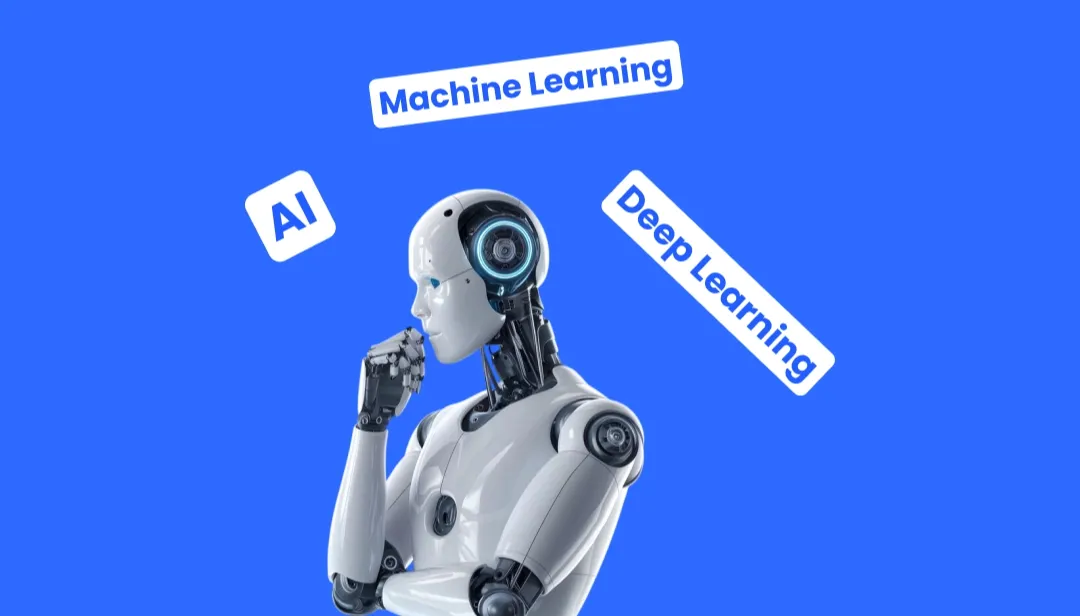
As we are approaching 2026, we are in the time of digitalization and modern technology. If you are a tech-savvy individual, you may be aware of these terms like AI vs Machine Learning vs Deep Learning. In modern times, every individual wants convenience and peace, and for that, they use modern technology every day. In this highly demanding era of technology, the businesses and enterprises that provide these services saw an opportunity to grow and scale. And with the advent of AI (Artificial Intelligence), Machine Learning (ML), and Deep Learning (DL), the growth of these businesses is quite possible. But here is the problem: most people think that AI vs Machine Learning vs Deep Learning are the same thing. But in reality, all three are a whole different thing altogether.
In this blog, we will discuss the difference between AI ML and Deep Learning in the simplest way possible. This includes concepts, real-world applications, and pros and cons of the three tech. Also, we will see how businesses approach their needs while choosing the right technology. So let’s dive in.
Understanding Artificial Intelligence (AI)
Artificial Intelligence, or AI, is a computer system capable of performing any tasks that typically require human intelligence. In other words, an AI is a technology that performs tasks that a normal human does. For example: problem solving, understanding language, deciding, analyzing patterns, and learning from experience. AI can perform a simple automation like auto-correct to advanced reasoning systems. You might receive personalized recommendations or see a robot performing things that humans do; it is the AI in action. All these things are possible only by talking to a virtual assistant.
Some people might do an artificial intelligence vs machine learning comparison. They also mix up Machine Learning and Deep Learning. However, one thing they should know is that ML and Deep Learning are part of the AI umbrella. You can also view it this way: ML and Deep Learning are part of AI. It permits the machines to become smarter over time.
Understanding Machine Learning (ML)
Machine learning is about systems that learn from data. They may not be programmed to single-handedly do each task, but they can analyze a large set of data, determine the patterns, and then provide predictions. Like for example, if you are exploring an E-commerce website for shopping, with the use of Machine Learning, the platform or the app can predict what you are looking for. That is possible because they have your past data, where they can see what you generally buy. The ML can also detect fraud in banks, weather forecasting, and Email spam filtering.
Machine learning operates based on algorithms like logistic regression, random forests, support vector machines, or decision trees. If someone says what is deep learning vs machine learning, you can just convey that the machine learning algorithm is supporting the AI to make it get better incrementally using data. The machine learning outputs serve as a guide for the AI.
Understanding Deep Learning (DL)
Deep Learning takes inspiration from the human brain. Deep Learning uses neural networks with multiple layers. It is commonly compared as deep learning vs machine learning. People generally compare deep learning vs machine learning, but deep learning is a more advanced branch of ML. Deep Learning works better when you have a large database. It is also useful when you need high-level pattern recognition, and human-like decision-making is needed. Some of the examples are facial recognition, self-driving cars, voice assistants, language translation, and medical imaging analysis. Like nowadays, if someone forgot their mobile phone’s password, they can unlock the phone by using a facial recognition system. It is possible because of deep learning. Another thing to note is that whoever compares deep learning vs AI, tell them that Deep Learning is purely data-driven. It uses enormous computing power, and it offers highly accurate predictions.
AI vs Machine Learning vs Deep Learning: What Sets Them Apart?
Here are the differences between AI ML and Deep Learning.
1. Scope
-
AI: AI is the broadest technology that includes all intelligent systems.
-
ML: It is a subset of AI that focuses on learning from data.
-
DL: It is also a subset of AI, and uses deep neural networks.
2. Data Needs
-
AI: It may not require large data.
-
ML: It needs structured data.
-
DL: It requires huge, high-dimensional datasets.
3. Complexity
-
AI: Low to High
-
ML: Moderate
-
DL: Most Complex
4. Human Intervention
-
AI: It is rule-based and requires constant updates.
-
ML: It requires feature engineering.
-
DL: Almost no manual intervention
5. Accuracy
-
AI: Good
-
ML: Better
-
DL: Highest
This framework makes the AI vs ML comparison clearer. It claims that AI is the ultimate goal, while ML is the method, and DL is the most advanced approach for advanced tasks.
How Businesses Use AI, ML, and Deep Learning Today?
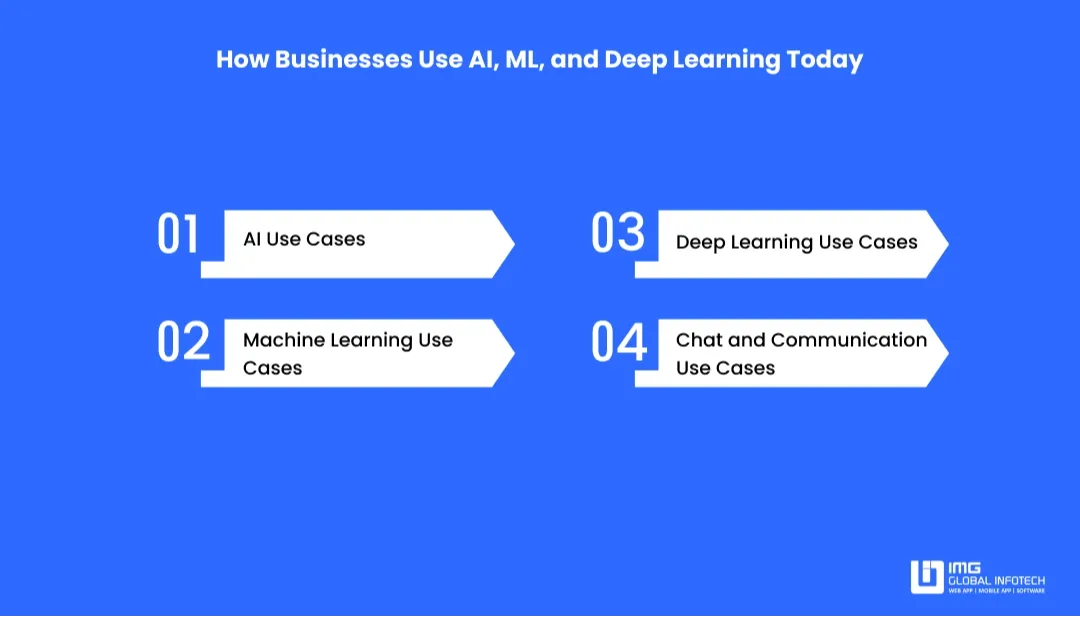
The way how AI, ML and Deep Learning are related becomes more meaningful when you see real-world use cases.
AI Use Cases
Companies are utilizing AI, ML, and Deep Learning for things like automatic customer service, fraud detection, robotics, and predictive analytics. For instance, if a customer were to buy a new product, they could do that through the e-commerce platform. The e-commerce platform will also suggest other products to the customers if they are regular buyers. Many businesses also hire an AI software development company to build tailored and customized solutions. It will help them to meet business goals.
Machine Learning Use Cases
There are quite a few use cases of Machine Learning, like recommendation engines, price optimization, lead scoring, and customer churn prediction. For an app-based decision automation, you can also approach an AI app development company in India.
Deep Learning Use Cases
Deep Learning is purely data-driven. It is used for autonomous vehicles, voice recognition, advanced medical diagnostics, and generative models. The business also uses Generative AI for content automation, synthetic data, and creativity-driven solutions.
Chat and Communication Use Cases
Many organizations invest in AI chatbot development to make life easier for themselves and for their customers. It helps in delivering smarter and automated customer support. Deep Learning also helps conversion engines, and the brands are very much inclined to invest in this sector.
Pros and Cons of AI, ML, and Deep Learning
There is an old saying - ‘Every coin has two sides’. In a similar vein, there are some negatives for every positive. Technology, in this day and age of advantages, has certain restrictions. Understanding the benefits and negatives of AI, ML, and Deep Learning allows businesses to make informed choices.
AI Pros
-
AI helps in automating repetitive and complex tasks.
-
It improves efficiency and decision-making.
-
AI has the ability to work even with smaller datasets
AI Cons
-
AI is costly and can be expensive to develop for some businesses, especially startups.
-
It may require regular updates. Without updation, it may have gone obsolete.
-
AI is dependent very much on Machine Learning and Deep learning.
ML Pros
-
ML learns from data and improves over time.
-
It also reduces human bias in predictions.
-
ML works well for structured data and analytics.
ML Cons
-
Without clean and high-quality data, using an ML program is not possible.
-
It also requires manual feature engineering.
-
Its productivity will be limited if the data is limited.
DL Pros
-
DL has the highest accuracy among all AI approaches
-
The best use case of DL is with images, voice, video, and unstructured data.
-
After training, it hardly needs human intervention.
DL Cons
-
It requires huge datasets
-
Expensive and Costly, especially for startups with a smaller budget.
-
DL has a black-box behaviour. It is very difficult to interpret.
Choosing the Right Technology for Your Business Needs
Choosing between AI vs Machine Learning vs Deep Learning is a very technical task. It depends on:
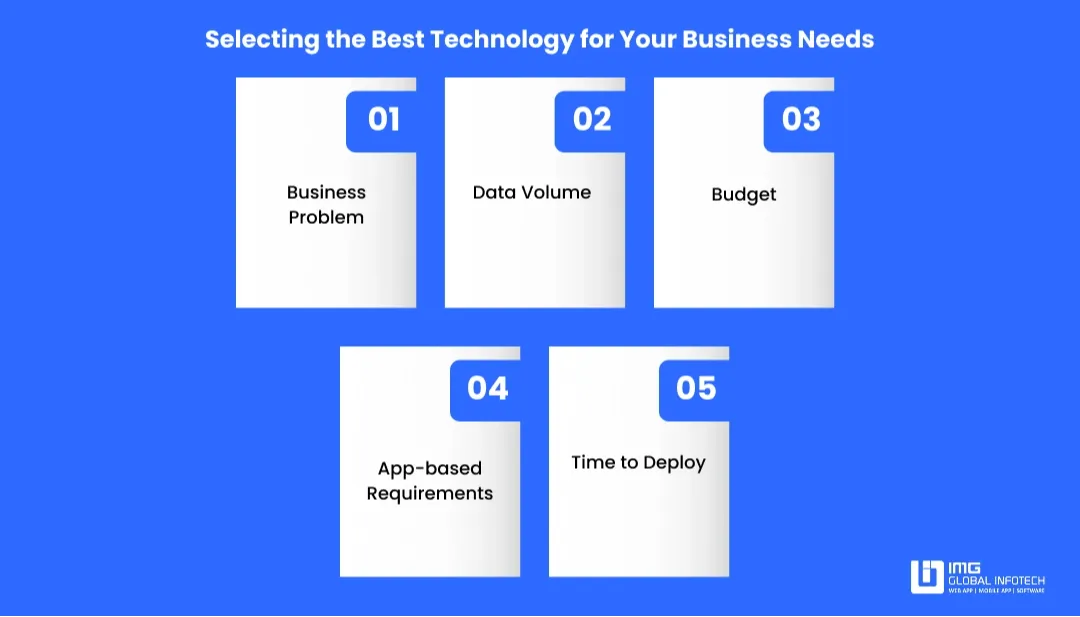
1. Business Problem
Selecting the AI vs Machine Learning vs Deep Learning debate will only end after determining the business problems. If you need automation, you can go with the AI. For predictions, ML is a good choice. And if you want ultra-high accuracy, DL is the way to go.
2. Data Volume
Choosing between AI, ML, and DL depends on the volume of the data. If there is a small dataset, a simple AI or ML is enough. For the large datasets, Deep Learning will come into play.
3. Budget
Understanding AI development cost is important for businesses, especially for the ones who are just starting and have a tight budget. Deep Learning needs GPUs and specialist knowledge, and planning a budget will help in better investment.
4. App-based Requirements
The experts in AI Mobile App Development will integrate technologies like ML or DL while building an intelligent mobile app. They know how to handle the data and understand scalability options.
5. Time to Deploy
Deploying AI is faster compared to ML or DL. DL took the longest time to deploy compared to the other two. For efficient and goal-driven digital transformation, choosing the right path is very important.
What the Future Holds for AI, ML & Deep Learning?
The future of advanced technologies will only increase from now on, beyond today’s comparisons like deep learning vs machine learning vs artificial intelligence. Innovations across industries are accelerating:
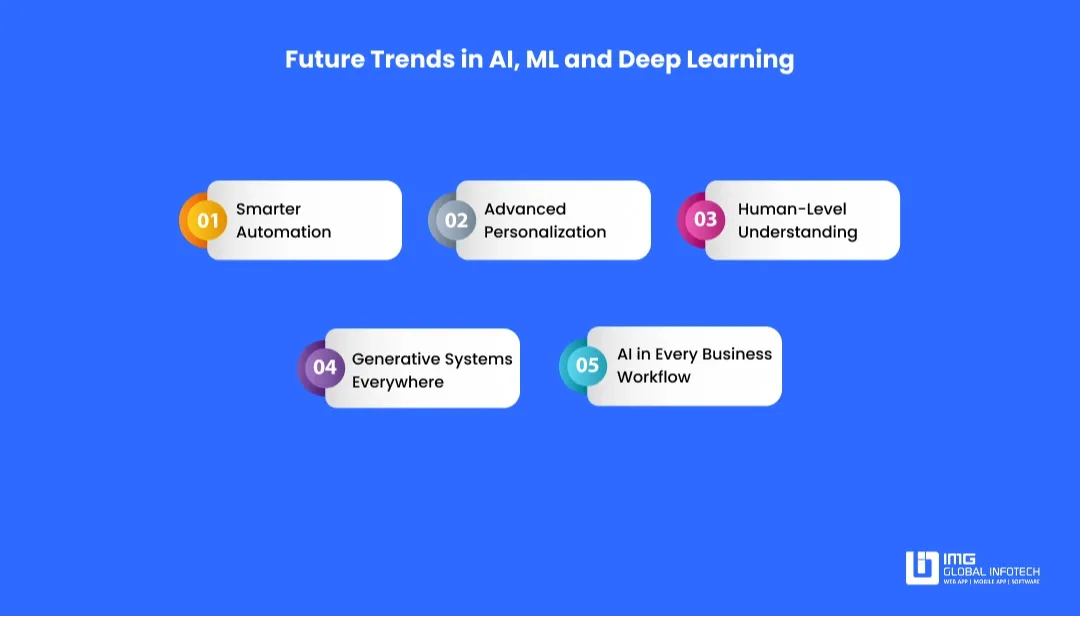
1. Smarter Automation
Human involvement will decrease more in the next few years. AI systems will handle more decision-making, with less need for humans.
2. Advanced Personalization
In this modern era, people love shopping, ordering food, ordering medicines when in need, and using other digital technology for their comfort. ML offers hyper-personalized shopping, medicine and other digital experiences.
3. Human-Level Understanding
Deep Learning models will be able to interpret emotions, context, and real-time sensory data.
4. Generative Systems Everywhere
For content production, strategies, and datasets, the industry uses tools like Generative AI. It can also produce the entire user experience from scratch.
5. AI in Every Business Workflow
AI is the new normal in this modern era. It has been dominating each and every industry, from manufacturing to education. AI-powered apps are becoming as common as using smartphones. And this technology is spreading everywhere, even in the Tier-2 and Tier-3 cities.
We are moving towards a universe where AI is not just a technology. It is a whole new digital layer for every business, and an important part of our day-to-day life.
CONCLUSION
Knowing AI vs Machine Learning vs Deep Learning is the first step to the way for choosing the right technology for your goals. AI is vast, and Machine Learning helps AI by learning from data. As far as Deep Learning is concerned, it takes learning from neural networks.
Whether you are looking for automation or advanced intelligence, these technologies will help you transform your business when used properly. These technologies also predict insights, which is useful for the scalability of the business. There are enough opportunities in the market for building smart apps and deploying intelligent chatbots. It is just a beginning. The future of innovation is very bright and far-sighted.
-
 How to Build a Jewelry E-commerce Website Like CaratLane?
How to Build a Jewelry E-commerce Website Like CaratLane?
-
 Porter-Like Logistics App Development Cost in 2026
Porter-Like Logistics App Development Cost in 2026
-
 Top AI Features Every Successful Astrology App Must Have
Top AI Features Every Successful Astrology App Must Have
-
 What Are the Top Ecommerce Development Trends to Watch in 2026?
What Are the Top Ecommerce Development Trends to Watch in 2026?
-
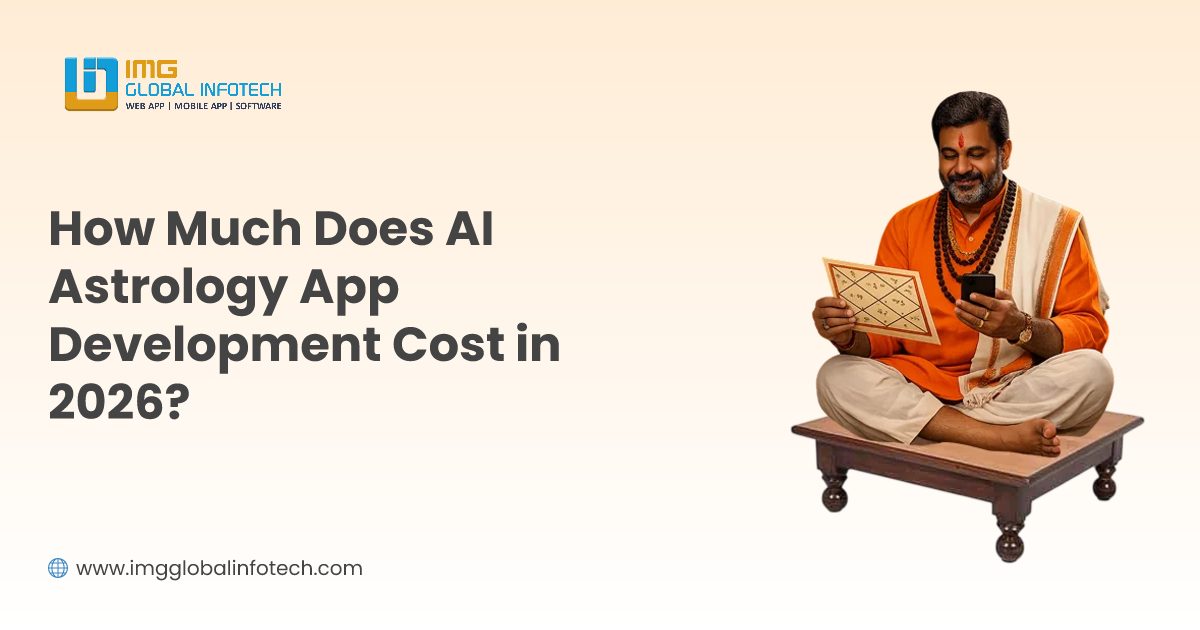 How Much Does AI Astrology App Development Cost in 2026?
How Much Does AI Astrology App Development Cost in 2026?
-
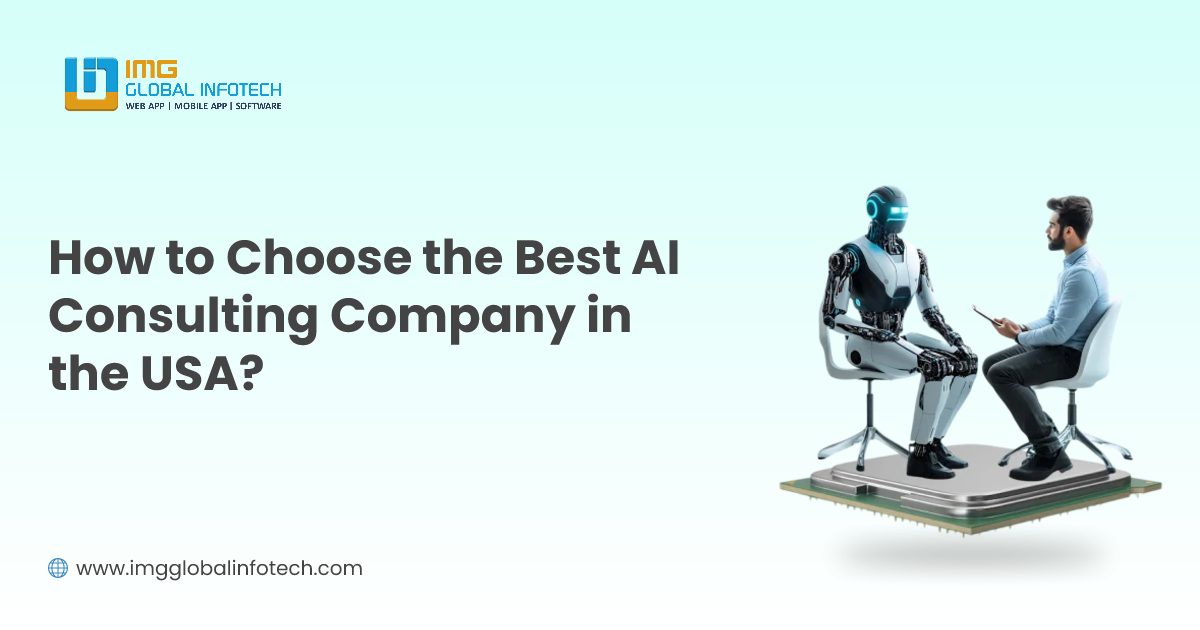 How to Choose the Right AI Consulting Company in the USA?
How to Choose the Right AI Consulting Company in the USA?
Lokesh Kumar is the Digital Marketing Manager & SEO Content Strategist at IMG Global Infotech, a top-rated Web & Mobile App Development Company. With extensive experience in digital marketing, SEO, and content strategy, he specializes in boosting online visibility and driving organic growth for startups, SMEs, and global brands. Lokesh is passionate about creating SEO-friendly, user-centric content that not only ranks but also converts. His deep understanding of digital trends and search algorithms helps businesses thrive in a competitive online space.


